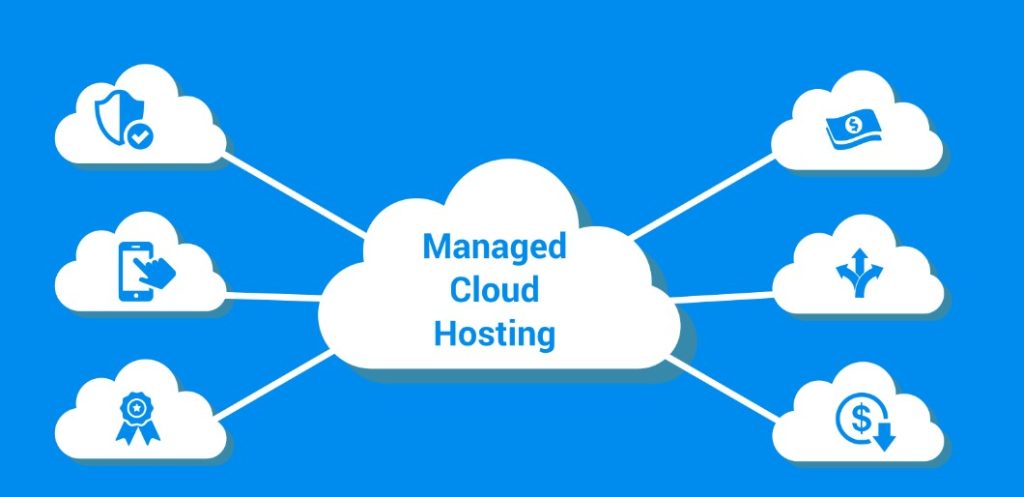In an age where having an online presence is not just an option, but a necessity, the demand for reliable hosting solutions is skyrocketing. When choosing between Cloud Hosting and VPS Hosting, many are caught in a dilemma. These two types of hosting offer different features, each with its own advantages and disadvantages. Our comprehensive guide aims to delve into the nitty-gritty details, laying bare the differences between Cloud VPS Hosting and traditional VPS Platforms. Buckle up as we explore essential features, underlying technology, benefits, and much more.
The Anatomy of VPS Hosting
When it comes to VPS Platforms, it’s important to start by understanding what exactly you’re investing in. Virtual Private Server (VPS) is like having your own dedicated portion of a physical server, complete with customization and control. You can install software, create databases, and more, all without worrying about other users on the same server affecting your operation.
But don’t let the term ‘private’ fool you. The security of your data on a VPS Platform is not automatically higher than other hosting options. The keyword here is ‘Virtual,’ which means that although you have your dedicated resources, the Security Cloud Data with VPS servers is still something to consider.
Additionally, VPS hosting allows you to scale your resources, but this often requires manual effort. This could mean more work for you or your system admin. As we’ll see later, this contrasts sharply with the scalability feature of Cloud Computing VPS.
Moreover, in a VPS setup, you generally have fewer resources compared to a cloud-based solution. While you can choose the amount of RAM, storage, and CPU, it is limited by the physical capacities of the server. Even if you go for a high-tier VPS Cloud Storage, your choices are bound by the hardware.
Lastly, VPS hosting provides a relatively stable environment for small to medium-sized websites. However, when traffic surges unpredictably, it might not be the most reliable option. This is particularly where Cloud VPS Hosting gains an edge.

What is Cloud Hosting?
Cloud Computing VPS is like the enigmatic prodigy in the world of hosting solutions. It’s not just one physical server, but a network of virtual servers connected across different locations. This ensures that if one server goes down, another picks up the slack, offering higher reliability and stability.
In terms of Cloud Storage VPS, cloud hosting is a winner. Because it employs multiple servers, it is easier to add extra storage and resources. Unlike traditional VPS Cloud Server setups, cloud hosting offers seamless scalability, allowing you to adjust resources in real-time as per the demands.
Let’s talk Security Cloud Data with VPS Servers Deal. In cloud hosting, security protocols are generally stronger due to centralized storage and better-reputed service providers. Thus, it becomes a lot easier to manage and recover data in case of security incidents.
Pricing in Cloud VPS Hosting is another interesting aspect. You pay for what you use, making it a flexible option for businesses with fluctuating needs. However, this could also mean that your monthly bill could be higher than expected during peak business periods.
Cloudways Hosting: The Best of Both Worlds?
One hybrid option gaining traction is Cloudways Hosting. It combines the best of both cloud and VPS hosting, offering robust features and flexibility. Cloudways incorporates multiple layers of security, dedicated firewalls, and frequent updates, which fortify the Security Cloud Data with VPS aspects.
But Cloudways Hosting isn’t just about security; it’s also highly efficient. With automated backups and real-time monitoring, the service minimizes the risk of data loss and downtime. This is especially useful for businesses that cannot afford to compromise on data integrity.
Speed is also another selling point of Cloudways Hosting. With advanced caching mechanisms and optimized servers, websites hosted on Cloudways often outperform their counterparts.
When it comes to pricing, Cloudways offers a pay-as-you-go system, which is a blessing for enterprises with varying requirements. You don’t have to be locked into a contract, giving you the freedom to scale your resources up or down as needed.

Hosting vs Cloud: Performance Metrics
When evaluating Hosting vs Cloud, performance is a key consideration. VPS often provides solid performance for websites with moderate traffic, thanks in part to dedicated resources. However, the performance can be compromised if the physical server hosting the virtual machines faces issues.
On the other hand, Cloud VPS Hosting generally provides superior performance because of the load distribution among multiple servers. This naturally reduces the chances of downtime and guarantees better uptime.
You also need to consider data transfer speed. Cloud hosting has the edge here, too. With distributed data centers, the data is often closer to the end-user, reducing latency and speeding up data transfer.
In terms of database performance, Cloud Computing VPS generally has an edge due to the sheer computational power of multiple interconnected servers. This is especially beneficial for complex applications and high-traffic websites that require robust database performance.
Security Measures in Both Hosting Types
No discussion about hosting would be complete without talking about security. VPS hosting offers a decent level of security, especially if you’re savvy enough to configure the settings yourself. However, the Security Cloud Data with VPS aspect often depends on the parent server’s security protocols.
Cloud hosting typically comes with robust security measures. Given that big-name providers often run these networks, they have the resources to invest in the best security measures. This includes firewalls, intrusion detection systems, and regular audits.
However, the Security Cloud Data with VPS Servers Deal also presents a unique challenge in cloud hosting: the complexity of the environment can make it difficult to maintain a consistent security posture. There are multiple access points, which increases the points of vulnerability.
Moreover, the centralized nature of Cloud Storage VPS means that if a hacker gains access, the damage could be extensive. Still, reputable cloud providers offer several layers of security, including encryption and multi-factor authentication.
Finally, it’s crucial to look at compliance requirements, especially for businesses that need to adhere to specific regulations such as GDPR or HIPAA. Cloud providers often offer detailed compliance certifications, making it easier for businesses to meet these requirements.

Pricing and Cost-Effectiveness
While VPS Cloud Server setups generally offer predictable pricing, cloud hosting adopts a more flexible pricing model, which can be both an advantage and a disadvantage. With VPS, you pay a fixed price based on the resources you choose, making it easier to budget.
However, cloud hosting is typically a pay-as-you-go model, which can be more cost-effective for businesses with fluctuating needs. Yet, the downside is that costs can unexpectedly shoot up during high-traffic periods or when additional resources are necessary. Unlike a traditional VPS Platform, you might not see the cost coming until you’re hit with the bill.
But it’s not all doom and gloom. The flexibility of Cloud VPS Hosting allows you to scale down resources during off-peak times, potentially saving you money in the long run. In contrast, with a VPS, you are stuck with the resources you initially chose unless you go through the often complicated process of upgrading or downgrading.
While both types of hosting services offer various plans to cater to different budgets, cloud hosting provides more granular control over your expenses. However, for those who prefer a set monthly expense without surprises, a traditional VPS Cloud Server may be more suitable.
Additionally, many Cloud Computing VPS providers offer robust features even in their basic packages, making them cost-effective solutions for small businesses that require high-end functionalities. On the other hand, to get the same features in a VPS, you might have to install additional software or modules, which could incur extra costs.
The Importance of Customer Support
Customer support is often an overlooked aspect when people compare Hosting vs Cloud, but it’s an area where the type of hosting can make a difference. VPS providers often offer support as an additional service, and the quality can vary significantly. If you’re tech-savvy and comfortable handling issues yourself, this may not be a deal-breaker for you.
In the realm of Cloud VPS Hosting, customer service is often more robust. Since cloud services usually cater to a wide range of clients, from individual developers to large corporations, they have the resources to offer extensive support. This often includes 24/7 availability, multiple communication channels, and sometimes even a dedicated account manager.
Moreover, since Cloud Computing VPS is more complex than traditional VPS hosting, having knowledgeable customer support is critical for solving issues quickly. This ensures that your website or application remains operational, reducing the risk of losing revenue due to downtime.
However, the cost of this enhanced support is sometimes baked into the pricing model. Therefore, if you choose Cloud VPS Hosting, make sure to assess the kind of customer support offered against the cost, to determine if it meets your needs.

Final Thoughts: Which One is Right for You?
The Cloud VPS vs VPS Hosting debate doesn’t have a one-size-fits-all answer. Your specific needs, technical expertise, and budget will largely dictate which hosting type is the best fit for your project.
If you need a more straightforward, predictable, and cost-effective solution and you possess the technical skills to manage it, a VPS Platform could be an excellent choice. It offers considerable customization and can be a powerful solution for small to medium websites.
On the flip side, if your business demands high reliability, seamless scalability, and top-notch performance, then Cloud VPS Hosting is the way to go. Despite its potentially higher costs, the multitude of features and benefits often justify the price tag.
In the end, both Cloud Hosting and VPS Hosting have their merits. The key is to understand your specific requirements and limitations to make an informed decision. After all, the hosting solution you choose will serve as the backbone of your online presence, influencing not just performance, but also user experience and, ultimately, your bottom line.


